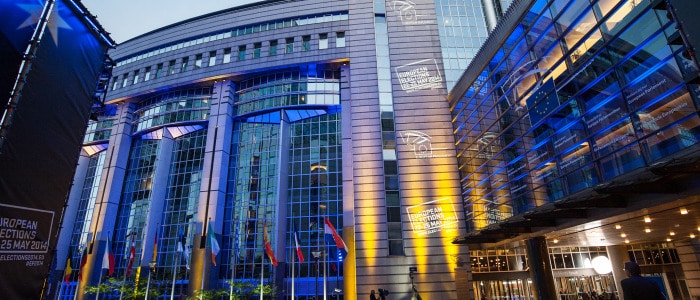Published
Cameron’s Speech
By: Fredrik Erixon
Subjects: European Union

David Cameron’s speech on Europe is no game changer for the European Union. His new strategy on Europe will not be a source of reforms in the EU. And therefore, it cannot be a viable strategy for Cameron to bridge the divide in his own party, or the British electorate, over Britain’s membership in the EU.
It was in many ways a refreshing speech, but it cannot be compared to Margaret Thatcher’s famous 1988 lecture in Bruges. While Thatcher, too, expressed euro realism she offered leadership and visions of integration in Europe – profoundly different to the euro-federalist idea of an unstoppable, inevitable, march towards ever closer political integration. Cameron’s offer is to move the Tory battlefield on Europe, and how it can win the next national election, to other EU members. They are now being asked to agree on a new settlement that would increase the chances that the referendum supports UK membership in the EU. Equally important, they are in effect being asked by Cameron to silence those who believe that he has to run on a Eurosceptic platform in the next general election to fight the threat from the UK Independence Party.
But this is why the Prime Minister’s strategy eventually will bite him in his back. It is highly unlikely that he will get a new settlement that profoundly changes the terms of membership. Such a settlement would come by the courtesy of other countries that want to reform the EU – they are the ones that are most keen for the UK to remain in the EU – and they do not like Cameron’s gambit. Most of them would privately understand the call for an in-or-out referendum – but not if the referendum itself, and the case for Britain remaining in the EU, is hinged upon a new settlement. Worryingly, they believe that Cameron’s strategy also reduces the chances that there could be real improvements in EU policy and the way that countries, with different views about how far they want to take EU integration, could cooperate more flexibly with each other.
Cameron’s speech offered a sensible analysis of problems in the EU as well as in many of its member states. Europe needs to be much more open to the world. It is time for yet another big push to liberalise markets and reform ossified public sectors. Taxes and government expenditures should come down. But Cameron is not alone in this view of Europe. There is among political leaders in Europe a solid majority supporting it – or taking it even farther. Britain is no longer a lonely nation fighting for free-market reforms in Europe against a continent where corporatism or dirigisme prevail.
In fact, the UK is no longer an outlier. It is no longer the champion in the EU for free trade. It is not the country that makes the most persistent and radical proposals for reforming agricultural subsidies, the EU budget, or cutting red tape. Several countries believe noxious regulations, especially environmental regulations, are being pushed down their throat with the strong support of Britain. Rightly or wrongly, quite many on Europe’s centre-right see today’s Tory party as wimpish on economic policy and as a non-ally in the opposition to Keynesian macroeconomics.
So, imagine you are heading a reform-friendly government in Helsinki, Stockholm, Tallinn, Warsaw, Amsterdam, Vienna, or Berlin: how would you respond to Cameron’s invitation to become a peacemaker in the Tory party? You would most probably say no – and distance yourself from him. While Cameron’s new strategy may calm sentiments in his own party, it is also poisoning his standing among other promoters of reform.